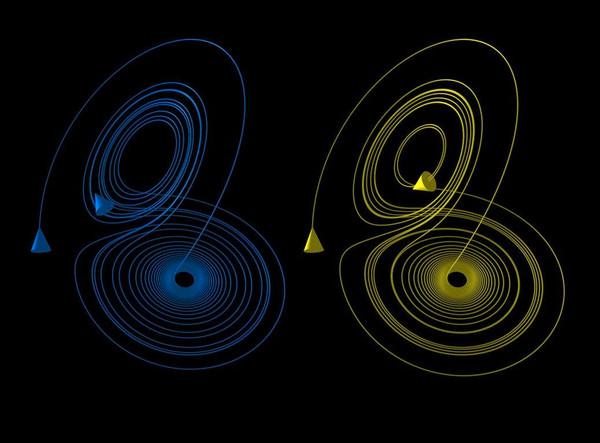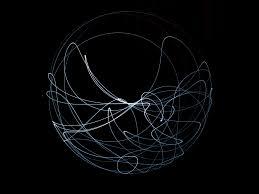Explainer: what is Chaos Theory?
Curated from: theconversation.com
Ideas, facts & insights covering these topics:
7 ideas
·5.83K reads
12
1
Explore the World's Best Ideas
Join today and uncover 100+ curated journeys from 50+ topics. Unlock access to our mobile app with extensive features.
Chaos Theory
Chaos Theory is a mathematical toolkit that allows us to extract ordered structures from chaos. The theory can reveal the intricate workings of such diverse natural systems as the beating of the human heart and the trajectories of asteroids.
At the center of Chaos Theory is the fascinating idea that order and chaos are not opposites. Chaotic systems are a mix of the two. From a distance, they may show unpredictable and chaotic behavior, but the inner workings have a perfectly deterministic set of equations that tick like clockwork.
397
1.57K reads
Tiny variations vastly affect the outcome
Order on a small scale can produce chaos on a larger scale. In systems that behave without chaotic effects, small differences could eventually increase in size until they produce large effects - the hallmark of a chaotic system.
Meteorologist Edward Lorenz made this profound discovery when he attempted to predict the weather more accurately using a mathematical model. He found that rounding numbers off to three decimal places significantly changed the course of his weather predictions. Lorenz famously illustrated this effect with the analogy of a butterfly flapping its wings, thereby causing a hurricane formation elsewhere.
316
856 reads
Understanding the butterfly effect
A good way to see the butterfly effect is with a game of billiards. No matter how consistent you are with the first shot, the smallest of differences in the speed and angle with which you strike the white ball will cause the balls to scatter in different directions every time.
What at first appears to be random behavior is completely deterministic. It only seems random because changes that are hardly noticeable are making all the difference.
347
853 reads
Collisions with Earth
The solar system is a chaotic system too. The effect of chaos cannot be ignored. Keeping an eye on asteroids and other bodies is worthwhile, since chaotic forces may one day fling an unwelcome surprise in the direction of the earth.
Feeding those predictions into our equations can divert external surprises.
291
722 reads
Attractive, strange behaviour
The way to unlocking the hidden structure of a chaotic system is in determining its preferred set of behaviors - known to mathematicians as its attractor. We may not be able to predict precisely how a chaotic system will behave, but knowing the attractor allows us to narrow down the possibilities.
The attractor can be illustrated by putting a ping-pong ball into the ocean. If released above the water, it will fall - if released underwater, it will float. No matter where it starts, the ball will immediately move in a predictable way towards its attractor - the ocean surface.
310
669 reads
Possible behaviours of a system
A "phase space" is used to describe the possible behaviors of a system geometrically. Phase space is not always like regular space: each location in phase space correlates with a different system configuration.
In phase space, a stable system will move predictably towards a simple attractor. A chaotic system will also move towards its attractor in phase space, but strange attractors appear that twist and turn.
285
572 reads
Phase space application
Phase space has an important application in understanding your heartbeat.
- The millions of cells that make up your heart are continually contracting and relaxing separately as part of an intricate chaotic system with complicated attractors.
- The millions of cells must work in sync to produce a healthy heartbeat.
- The intricate state of synchronization is an attractor of the system.
- In fibrillation, the cells constantly contract and relax in the wrong sequence. A defibrillator device gives the chaotic system an electric jolt to move it back to the healthy heartbeat attractor.
292
586 reads
IDEAS CURATED BY
For every question, there is an answer. For every problem, there is a solution. For everything else, there is an explanation.
Ryker 's ideas are part of this journey:
Learn more about problemsolving with this collection
Ways to improve productivity
Strategies for reducing stress
Tips for managing email overload
Related collections
Similar ideas
4 ideas
9 ideas
The Butterfly Effect.
thedecisionlab.com
4 ideas
How ‘Chaos Theory’ Can Help You Get Ahead in Your Career
forge.medium.com
Read & Learn
20x Faster
without
deepstash
with
deepstash
with
deepstash
Personalized microlearning
—
100+ Learning Journeys
—
Access to 200,000+ ideas
—
Access to the mobile app
—
Unlimited idea saving
—
—
Unlimited history
—
—
Unlimited listening to ideas
—
—
Downloading & offline access
—
—
Supercharge your mind with one idea per day
Enter your email and spend 1 minute every day to learn something new.
I agree to receive email updates

